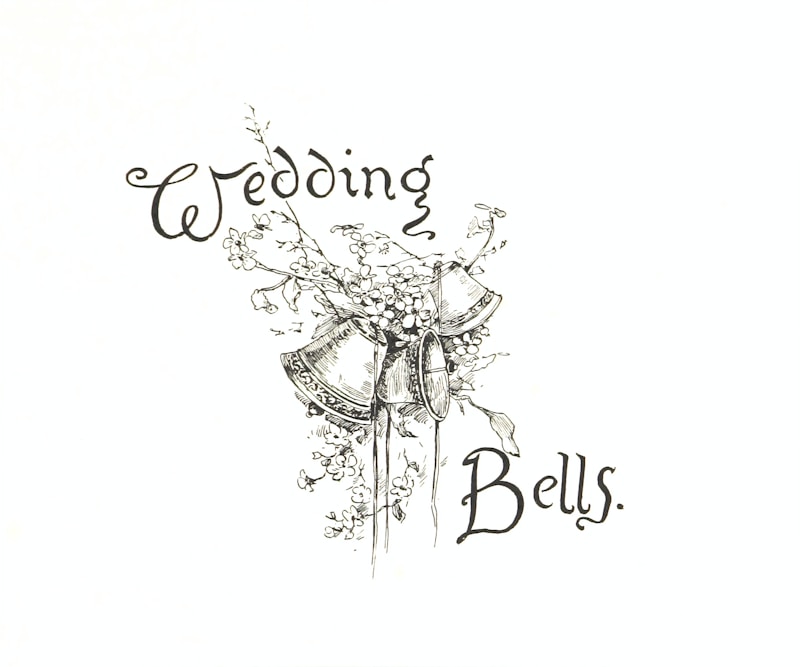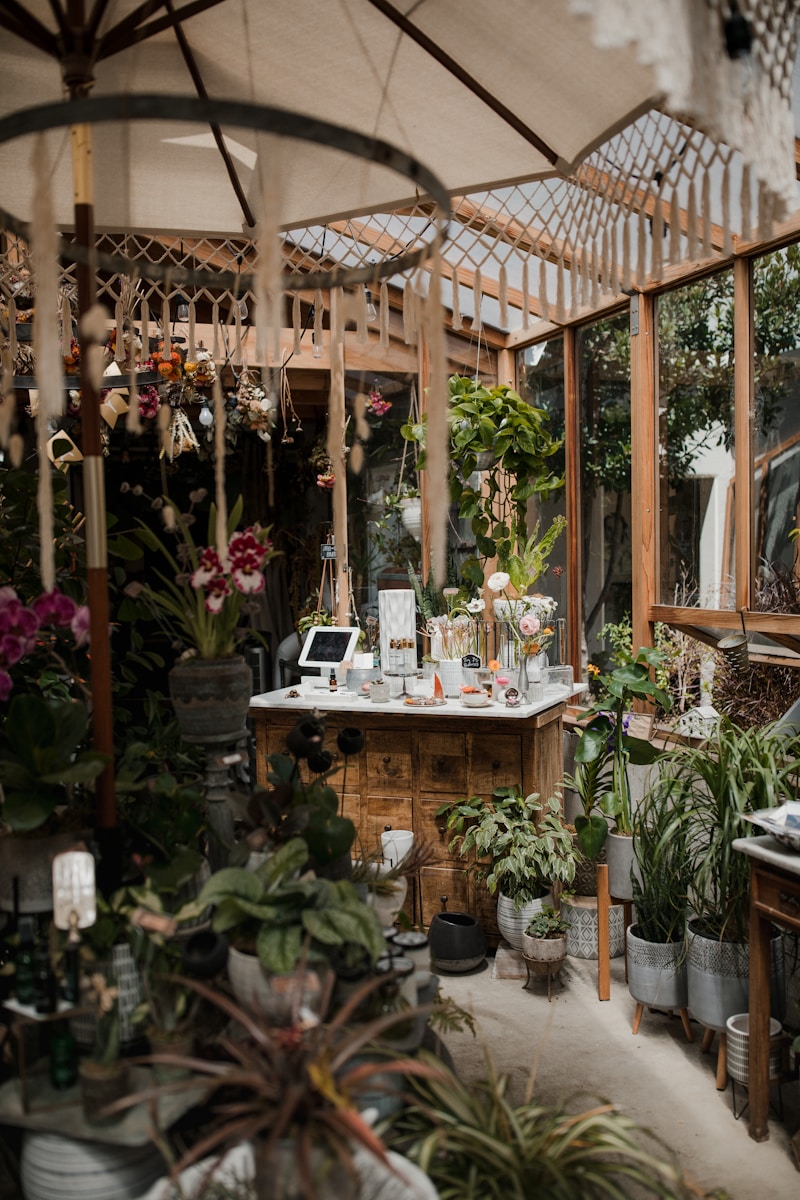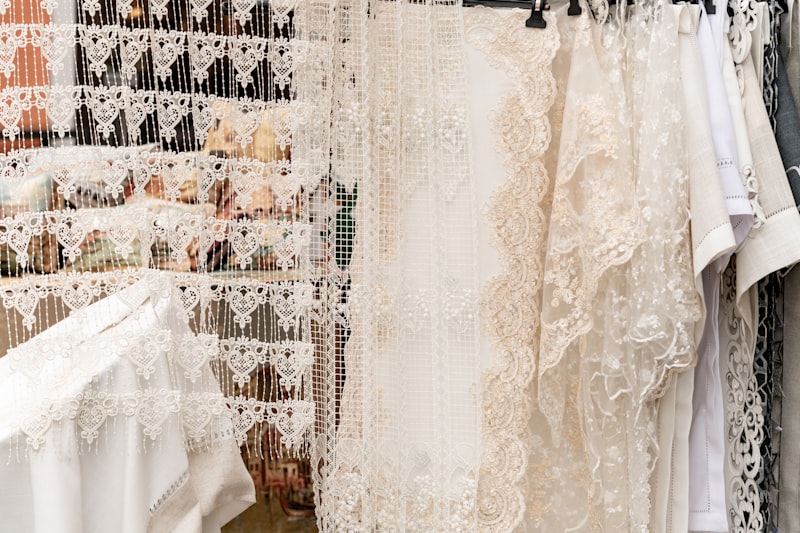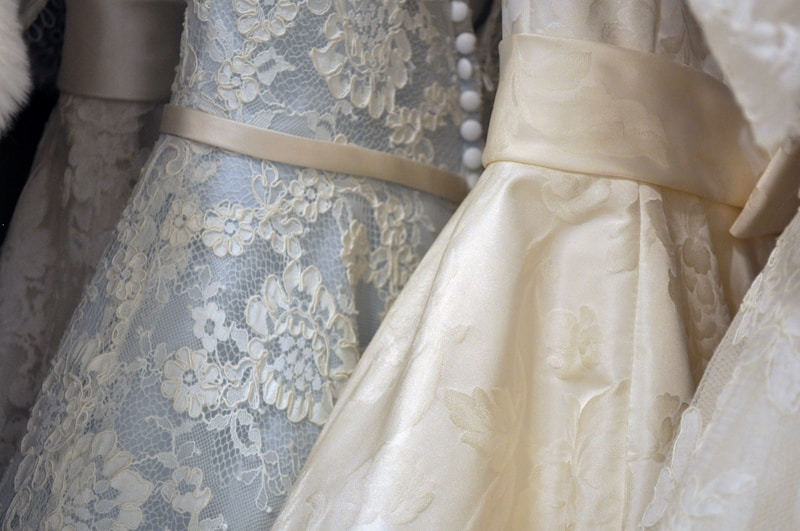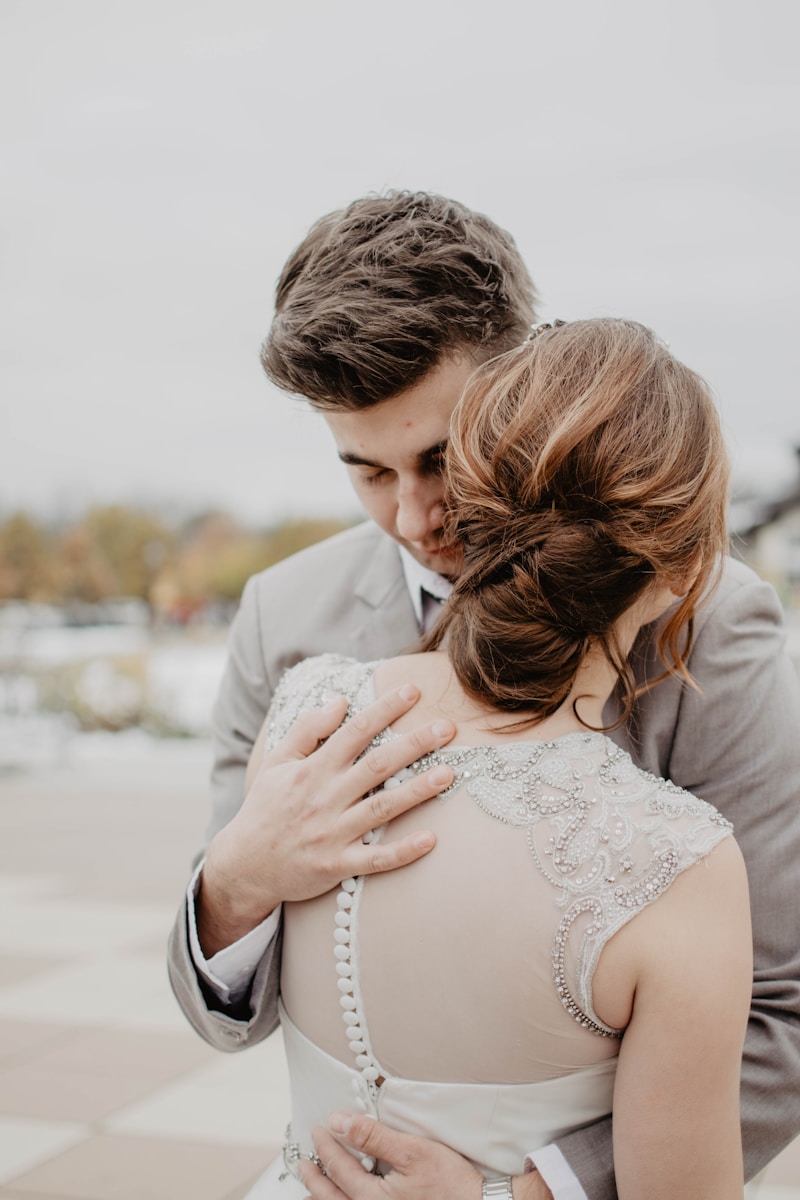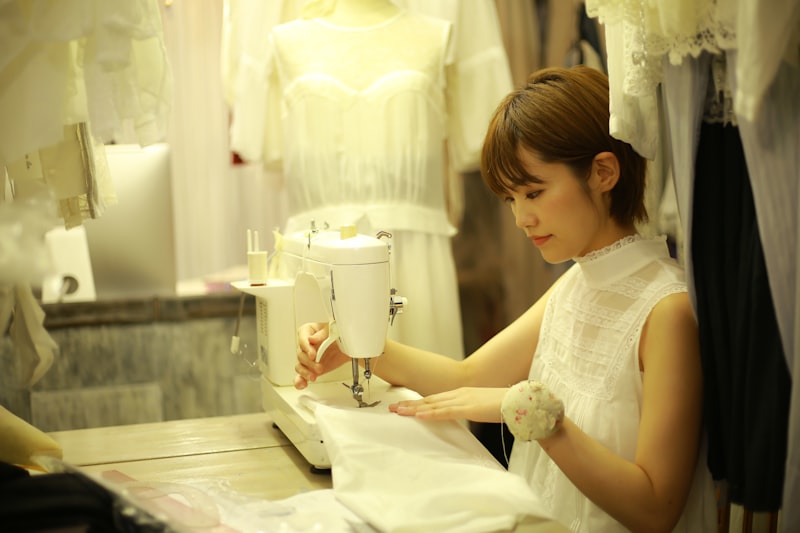Understanding Necessary Permits for Your Bridal Business: A Comprehensive Guide
Starting a bridal business can be a dream come true, but navigating the legal landscape is crucial for success. Understanding the necessary permits for bridal business is essential to ensure that your operations comply with local regulations. In this article, we will explore the various permits you might need, the steps to obtain them, and additional factors to consider when launching your bridal venture.Why Permits Are Essential for Your Bridal BusinessLaunching a bridal business without the proper permits can lead to severe legal implications, including fines and potential closure. Below are some key reasons why obtaining necessary permits is crucial: Legal Compliance: Adhering to local laws protects your business and gives customers confidence in your legitimacy. Risk Mitigation: Permits help mitigate risks by ensuring safety standards for your customers and employees. Increased Trust: Customers are more likely to trust a business that operates transparently and legally.Types of Permits Required for Bridal BusinessesDepending on your specific business structure and location, different permits may be required. Here is a summary of commonly needed permits:Permit TypeDescriptionBusiness LicenseRequired to legally operate your business in your jurisdiction.Sales Tax PermitNecessary for collecting sales tax from customers if you are selling physical products.Health and Safety PermitsEnsures your business meets hygiene and safety standards, especially if you are providi...
Essential Trademark Considerations for Bridal Shop Branding: A Comprehensive Guide
Starting a bridal shop can be an exciting journey, filled with creativity and business opportunities. However, amidst the delightful chaos of gown selections and bridal accessories, it is crucial to consider legal aspects that can significantly affect your brand’s longevity and integrity. In this article, we will dive deep into the trademark considerations for bridal shop branding, helping you understand how to protect your brand while making a lasting impression in the wedding industry.The Importance of Trademarks in Bridal Shop BrandingTrademarks are essential for any business, serving as identifiers of origin and guaranteeing the quality of products or services. For bridal shops, establishing a strong brand identity means conveying trust, elegance, and the spirit of joy associated with weddings. Understanding trademark considerations helps you protect your brand against infringement and ensures that you can build a unique identity in a competitive market.What is a Trademark?A trademark is a recognizable sign, design, or expression that distinguishes products or services of one entity from those of others. In the context of bridal shops, your trademark might include your shop name, logo, and even slogans. A registered trademark gives you exclusive rights to use the mark, and it serves as a legal safeguard against unauthorized use by others.Key Trademark ConsiderationsWhen developing your brand for a bridal shop, here are several key trademark considerations to keep in mind:...
Understanding Liability Waivers and Contracts in Bridal Sales
When planning a wedding, one of the crucial aspects brides and grooms must consider is the contracts and liability waivers involved in bridal sales. From wedding dresses to catering services, understanding these legal documents can protect you and ensure everything goes smoothly on your special day. In this article, we will delve deep into the world of liability waivers and contracts in bridal sales, highlighting their significance, components, and common questions couples might have.The Importance of Liability WaiversLiability waivers play an essential role in bridal sales. They serve as legal agreements that release one party from liability in case of any injuries or damages. For example, a bridal shop may require you to sign a waiver if you are trying on dresses to protect themselves from potential accidents or damages to the merchandise.Key Components of Liability WaiversA well-drafted liability waiver should contain the following components: Clear Language: The waiver should be easy to read and understand. Scope of Liability: It should specify what liabilities are being waived. Informed Consent: The individual signing the waiver must understand what they are agreeing to. Signature and Date: A signature and date are vital for the waiver's enforcement.ComponentDescriptionClear LanguageThe waiver must be comprehensible to the average person.Scope of LiabilityDetails which liabilities are being waived.Informed ConsentConfirms that the signee understands the implicati...
Zoning Laws Affecting Bridal Boutiques: What You Need to Know
Opening a bridal boutique can be a dream come true for many entrepreneurs passionate about weddings and fashion. However, before you embark on this exciting journey, it's important to understand the various zoning laws affecting bridal boutiques. These regulations can significantly impact your business location, operations, and marketing strategies. This article will explore the intricacies of zoning laws as they pertain to bridal boutiques, providing valuable insights for prospective owners.Understanding Zoning LawsZoning laws are local laws that dictate how land can be used in specific areas. They are designed to promote orderly growth and development, ensuring that businesses and residences coexist harmoniously. Zoning regulations can impact everything from the appearance of your boutique to its operational hours and customer traffic.Types of Zoning LawsThere are several types of zoning laws that may affect bridal boutiques:Zoning TypeDescriptionResidentialThis zoning type is primarily for housing and may limit or prohibit commercial activities, including retail.CommercialAreas designated for business activities where bridal boutiques will typically be located.Mixed-UseThese areas allow for both residential and commercial activities, providing flexibility for boutiques and other businesses.Special UseDesignated for specific types of businesses that may require additional regulations or permits.How Zoning Laws Impact Bridal BoutiquesThe effects of zoning laws on bridal bout...
Understanding Regulatory Approvals for Bridal Shops: A Comprehensive Guide
Introduction to Regulatory Approvals for Bridal ShopsThe wedding industry is a multi-million dollar business, and bridal shops play a crucial role in making the dreams of many couples come true. However, opening and operating a bridal shop isn’t just about choosing beautiful dresses and providing exceptional customer service; it also requires navigating the maze of regulatory approvals. This article aims to shed light on the various regulatory requirements that bridal shops must comply with to operate legally and successfully.Why Regulatory Approvals MatterRegulatory approvals serve multiple purposes in the bridal shop industry:Safety and Compliance:To ensure that the products sold are safe for consumers, bridal shops must comply with local laws and regulations. This includes appropriate labeling, product safety standards, and other consumer protection laws.Business Legitimacy:Regulatory approvals enhance the credibility of your business. Obtaining the necessary licenses showcases your commitment to operating legally, which can build trust with potential customers.Financial Protection:Staying compliant helps shield your business from fines, penalties, or even closure. Regulatory approvals can safeguard your financial investments by ensuring you meet all legal standards.Key Regulatory Approvals for Bridal ShopsIn order to operate a bridal shop legally, several regulatory approvals must be obtained. Here's a closer look at these requirements:Regulatory ApprovalDescriptionImport...
Legal Compliance for Bridal Stores: A Comprehensive Guide
Understanding Legal Compliance for Bridal StoresBridal stores play a critical role in the wedding industry, offering an array of products and services that meet the needs of engaged couples. However, maintaining a bridal store requires more than just a passion for fashion and customer service. Legal compliance is essential to ensure that your business operates smoothly, adheres to the law, and protects itself against potential legal issues. This article will explore the key aspects of legal compliance for bridal stores, including licenses, employee regulations, consumer protection laws, and more.1. Business Licenses and PermitsBefore opening a bridal store, it’s vital to acquire the proper business licenses and permits. These regulations can vary significantly based on your location, so it's crucial to consult local and state requirements. Generally, here are some common licenses you may need:License/PermitDescriptionBusiness LicenseRequired to legally operate a business.Sales Tax PermitNecessary for collecting sales tax from customers.Employer Identification Number (EIN)Used for tax purposes and hiring employees.Sign PermitRequired for displaying any signage outside your store.2. Employee RegulationsAs your bridal store grows, hiring employees may become necessary. Ensuring legal compliance in this area is crucial for avoiding lawsuits and penalties. Here are several key aspects to consider:Labor Laws: Familiarize yourself with labor laws in your jurisdiction regarding minim...
Legal Compliance for Bridal Business: A Comprehensive Guide
Starting a bridal business can be an exciting venture filled with creativity and passion. However, navigating the complex web of legal compliance is essential for the sustainability and success of your business. In this article, we will explore the important aspects of legal compliance for bridal businesses, discussing licensing, contracts, insurance, and more, while providing practical advice to help you stay on the right side of the law.Understanding Legal Compliance in the Bridal IndustryLegal compliance refers to adhering to laws, regulations, and standards set by local, state, and federal authorities. For bridal businesses, this includes various aspects such as zoning laws, business licenses, insurance requirements, and employment laws. Understanding these elements can protect your business from costly legal issues down the line.1. Business Structure and LicensingBefore you can start selling bridal gowns, organizing weddings, or providing related services, you must choose a business structure. Common types include sole proprietorship, partnership, LLC (Limited Liability Company), and corporation. Each structure has its own legal implications, tax obligations, and liability protections. Once you have chosen a structure, you will likely need to obtain a business license. The requirements vary by location, so it is crucial to check with your local government. In many areas, bridal businesses are classified under general retail, and obtaining a retail business license may be...
Understanding Permits and Licenses for Wedding Dress Boutiques
When starting a wedding dress boutique, one of the most critical steps involves understanding the permits and licenses required to operate legally. This can be quite daunting, but being informed about what is necessary can help you avoid fines and ensure a smooth launch of your business. In this article, we will explore the essential permits and licenses for wedding dress boutiques, guiding you through the process to help you succeed.Why Permits and Licenses MatterStarting any business requires a set of permits and licenses. For wedding dress boutiques, this is especially true. Having the right paperwork not only legitimizes your business but also builds trust with customers. Operating without the necessary licenses can lead to penalties, fines, or even business closure. Let’s break down the essential permits and licenses you need.Common Permits Needed for Wedding Dress BoutiquesPermit TypeDescriptionBusiness LicenseA general requirement for operating any business legally.Sales Tax PermitRequired to collect sales tax on purchases.Occupancy PermitEnsures the building complies with zoning laws and safety codes.State LicensesMay vary by state; check regulations for specific requirements.Trademark RegistrationProtects your store's name and brand identity.Steps to Obtain Permits and LicensesThe process of obtaining permits and licenses can seem overwhelming, but following these steps can simplify it:1. Research Local RequirementsEach locality has its regulations regarding business...
Starting a Bridal Shop Legally: A Comprehensive Guide for Aspiring Entrepreneurs
IntroductionStarting a bridal shop can be an exciting venture for those passionate about fashion and weddings. However, the path to opening a bridal shop can be complex, especially when it comes to legal considerations. In this article, we will explore the essential steps to legally establish your bridal shop, the costs involved, and tips for success. Whether you are a first-time entrepreneur or an experienced retailer, this guide will provide valuable insights into the wedding industry.Understanding the Bridal IndustryThe bridal industry is a billion-dollar market, with couples often spending a significant portion of their budget on their wedding attire. According to recent statistics, the average cost of a wedding dress is around $1,800 in the United States. With weddings becoming increasingly personalized and unique, there is a growing demand for diverse styles, fabrics, and sizes. This trend presents a lucrative opportunity for entrepreneurs looking to enter the bridal market.Key Steps to Start a Bridal Shop Legally1. Business Plan DevelopmentCreating a robust business plan is the first step in starting your bridal shop. This plan should outline your business model, target market, budget, and marketing strategy. A well-structured business plan will not only serve as a road map for your business but also assist in securing financing from investors or banks. Consider including the following sections in your business plan:Business ModelTarget MarketBudgetingMarketing Strateg...
Essential Guide to Business Registration for Bridal Stores
Starting a bridal store can be an exciting venture, but before you dive in, understanding the importance of business registration is essential. Whether you’re planning to sell wedding dresses, accessories, or other related products, the steps for business registration will provide a solid foundation for your new enterprise. In this article, we will explore the ins and outs of business registration for bridal stores, including important considerations, common questions, and tips for success. Why is Business Registration Important? Business registration legitimizes your bridal store and offers numerous benefits, including: Legal Protection: Registering your business protects your personal assets from any debts or liabilities incurred by the business. Brand Protection: Registration can help protect your brand name, ensuring that no one else can use it. Access to Funding: Registered businesses are more likely to qualify for loans, grants, and investment opportunities. Business Credibility: Having a registered business increases your credibility with customers, suppliers, and partners. Steps to Register Your Bridal Store Registering your business is a systematic process that can vary by state or country. Below are the general steps you should follow: 1. Choose Your Business Structure The first step in business registration is to choose the legal structure of your bridal store. Here are some common options: Business Structure Description Sole Proprietorship Owned and operate...
Understanding Insurance Requirements for Bridal Shops: A Comprehensive Guide
As the bridal industry continues to flourish, understanding the insurance requirements for bridal shops is crucial. From protecting your assets to ensuring compliance with local regulations, having the right insurance policies can safeguard your business and provide peace of mind. In this article, we will delve into the various insurance requirements for bridal shops, common policies needed, and additional considerations to keep in mind.Why Insurance is Essential for Bridal ShopsBridal shops are unique businesses that face a variety of risks. The potential for financial loss due to property damage, customer disputes, or employee-related issues underscores the importance of being adequately insured. With the right insurance coverage, bridal shop owners can mitigate these risks and focus on creating a memorable experience for their clients.Common Risks Faced by Bridal ShopsRiskDescriptionProperty DamageDamage caused by fire, theft, or natural disasters affecting physical space and merchandise.Liability ClaimsClaims made by customers or employees due to accidents or injuries occurring on the premises.Professional ErrorsMistakes related to alterations or fittings that could lead to financial loss for clients.Employee InjuriesInjuries occurring on the job that could result in workers' compensation claims.Essential Insurance Policies for Bridal ShopsTo protect your bridal shop from potential risks, it’s important to invest in several essential insurance policies. Here’s a breakdown...
Zoning Laws Affecting Wedding Dress Businesses: Navigating Regulations for Success
Understanding Zoning Laws and Their Impact on Wedding Dress BusinessesThe wedding industry, particularly wedding dress businesses, is a vibrant and growing sector. However, the success of these businesses can heavily depend on zoning laws in their respective areas. In this article, we will explore how zoning laws affect wedding dress businesses, the challenges they face, and strategies to navigate these regulations effectively. Additionally, we will provide insights into other related topics that could benefit business owners in the wedding dress industry.What Are Zoning Laws?Zoning laws are regulations that dictate how land can be used in specific areas. They determine what kind of businesses can operate in certain locations, affecting everything from retail stores to residential homes. For wedding dress businesses, zoning laws can present both challenges and opportunities, especially if they are running a physical storefront.Types of Zoning RegulationsUnderstanding the types of zoning regulations is crucial for wedding dress business owners. Here are some common categories:Zoning TypeDescriptionResidentialAreas designated for homes where retail or commercial activities may be restricted.CommercialAreas that allow various businesses, including wedding dress shops, to operate freely.Mixed-UseAreas that combine residential and commercial uses, providing opportunities for wedding dress businesses to thrive.IndustrialZones typically reserved for manufacturing and distribution, w...
Health and Safety Regulations for Bridal Shops: A Comprehensive Guide
Bridal shops play a unique and crucial role in the wedding industry, offering brides-to-be the perfect attire for one of the most significant days of their lives. However, running a bridal shop involves various factors that require strict adherence to health and safety regulations. This article explores the essential health and safety standards that bridal shops must implement to create a safe and pleasant environment for both customers and employees.Understanding Health and Safety RegulationsHealth and safety regulations are designed to ensure the well-being of individuals in various industries, including retail. For bridal shops, these regulations encompass everything from fabric safety to maintaining a clean and hygienic environment. In recent years, there has been greater scrutiny regarding how businesses comply with these standards, particularly in the context of a post-pandemic world.Key Health and Safety Regulations for Bridal ShopsBridal shops should be aware of a range of health and safety regulations that are critical to their operations. Here are some of the fundamental regulations:RegulationDescriptionFire Safety RegulationsBridal shops must follow strict fire safety protocols, including appropriate fire exits, extinguishers, and regular fire drills.Textile Safety StandardsFabrics used in bridal gowns should comply with safety standards to prevent flammability hazards.Workplace HygieneMaintaining hygiene standards is crucial. Shops must regularly disinfect surface...
Understanding Tax Obligations for Wedding Dress Retailers: A Comprehensive Guide
Running a wedding dress retail business can be a dreamy endeavor, with countless brides-to-be relying on your expertise to find the perfect gown for their special day. However, alongside the joys of catering to weddings comes the crucial responsibility of understanding tax obligations. This article will delve into the various tax requirements that wedding dress retailers must comply with, ensuring that you are well-informed and prepared. We will explore sales tax, income tax, and other pertinent aspects that could impact your business.Sales Tax ResponsibilitiesAs a wedding dress retailer, one of your primary tax obligations involves sales tax. This is a form of consumption tax collected by the state or local government on the sale of goods and services. Understanding the nuances of sales tax is essential, as it can vary significantly based on factors such as location and the type of products sold.1. Determining the Sales Tax RateThe sales tax rate applied to wedding dresses will depend on your business’s physical location. For instance, if your store is located in California, you will need to adhere to the state’s base sales tax rate of 7.25%, along with any additional city or county taxes that may apply. It is vital to check your local governmental regulations to determine the accurate rate.StateBase Sales Tax RateAdditional Local TaxTotal Sales Tax RateCalifornia7.25%UP to 3.25%UP to 10.5%Texas6.25%UP to 2%UP to 8.25%New York4%UP to 4.5%UP to 8.5%2. Collecting Sales TaxAs a...
Comprehensive Guide to Employee Regulations for Bridal Boutiques
Understanding Employee Regulations for Bridal BoutiquesAs the wedding industry continues to flourish, bridal boutiques face unique challenges when it comes to managing their employees. Ensuring compliance with employee regulations is crucial for success in this captivating yet demanding business. This article provides a thorough exploration of the employee regulations specifically for bridal boutiques, including best practices, employee rights, and essential tips for boutique owners.Overview of Employee RegulationsEmployee regulations vary widely by location, but they generally cover several key areas including hiring practices, wage requirements, workplace safety, and employee rights. Bridal boutiques must stay informed about federal, state, and local employment laws to operate efficiently and ethically. In the United States, for instance, the Fair Labor Standards Act (FLSA) outlines guidelines for minimum wage and overtime pay, which are critical for boutique owners to understand.Key Employee Regulations Relevant to Bridal BoutiquesBelow, we summarize some of the critical employee regulations that affect bridal boutiques:RegulationDescriptionWage LawsCompliance with federal and state minimum wage laws, including overtime pay regulations.Discrimination LawsProhibition of discrimination based on race, gender, age, or disability in hiring and employment practices.Workplace SafetyAdherence to OSHA standards to ensure a safe working environment for all employees.Employment Contr...
Essential Legal Contracts for Bridal Shop Owners: A Comprehensive Guide
The Importance of Legal Contracts in the Bridal BusinessRunning a bridal shop can be a dream come true for many entrepreneurs. However, like any business, it comes with its own set of challenges and legal requirements. One of the most critical aspects of ensuring your bridal shop's success is understanding the legal contracts that govern your business operations. This article will delve into the essential legal contracts every bridal shop owner needs to know, the implications of these contracts, and tips on how to manage them effectively.What are Legal Contracts?Legal contracts are written agreements that outline the terms of a transaction or relationship between two or more parties. In the context of a bridal shop, legal contracts play a crucial role in ensuring clear communication, setting expectations, and protecting your business interests.Types of Legal Contracts for Bridal Shop OwnersSeveral types of legal contracts are essential for bridal shop owners. Below are some of the most common ones:Contract TypeDescriptionSupply AgreementThis contract outlines the terms of purchase for bridal gowns, accessories, and other inventory from suppliers. It includes pricing, delivery schedules, and quality expectations.Client AgreementA contract that establishes the terms of service between the bridal shop and the client. This includes the scope of services, payment terms, and cancellation policies.Lease AgreementThis is a legal agreement between the shop owner and the landlord, spec...
Achieving Bridal Shop Operational Compliance: A Comprehensive Guide
Understanding Bridal Shop Operational ComplianceIn the world of bridal shops, operational compliance is crucial for running a successful business. It involves adhering to various regulations, best practices, and industry standards. By ensuring compliance, bridal shop owners can provide exceptional service to their clients while minimizing risks and enhancing their reputation in the market.The Importance of Operational Compliance in a Bridal ShopWhen running a bridal shop, operational compliance means maintaining adherence to legal and operational standards relevant to the industry. This is essential for several reasons: Legal Protection: Compliance with local, state, and federal laws protects your business from legal issues that may arise. Customer Trust: Customers are more likely to trust a bridal shop that follows industry regulations, leading to higher sales and customer retention. Brand Reputation: A compliant bridal shop can enhance its brand reputation, making it a preferred choice for brides and grooms alike.Key Areas of Compliance for Bridal ShopsThere are several crucial areas bridal shops should focus on to ensure operational compliance:1. Health and Safety RegulationsBridal shops must adhere to health and safety standards to protect both employees and clients. This includes maintaining cleanliness, ensuring safe working conditions, and following guidelines for handling hazardous materials, such as cleaning agents for wedding dresses. Compliance with these ...
Understanding Consumer Protection Laws for Bridal Businesses: A Comprehensive Guide
IntroductionThe bridal industry is a vibrant landscape filled with creativity and emotion, providing a wide range of services, from wedding dresses to catering. However, as businesses operate in this emotional space, they must also navigate the complexities of consumer protection laws. This article will provide a detailed overview of these laws as they pertain to bridal businesses, while also addressing some frequently asked questions and essential considerations.What Are Consumer Protection Laws?Consumer protection laws are regulations designed to ensure the rights of consumers are protected. They aim to prevent businesses from engaging in unfair practices, deceptive advertising, and fraud. In the bridal industry, this is particularly crucial given the significant financial investments couples make in their weddings.The Importance of Consumer Protection in the Bridal IndustryThe bridal industry is not only a business sector but also a fundamental part of many people's lives, associated with some of the most important events. Therefore, consumer protection laws serve multiple vital functions: Safeguarding Consumers: Ensuring brides and grooms receive fair treatment and the products/services they are promised. Promoting Transparency: Encouraging businesses to provide clear and honest information to consumers. Building Trust: Helping businesses cultivate a trustworthy reputation, which encourages repeat customers and referrals.Key Consumer Protection Laws Relevant to B...
Understanding Intellectual Property for Bridal Design: A Comprehensive Guide
Exploring Intellectual Property in Bridal DesignThe bridal design industry is an exhilarating blend of creativity and commerce. For designers venturing into this competitive field, understanding intellectual property (IP) is crucial. This article provides an in-depth look at various forms of intellectual property relevant to bridal design, including copyright, trademarks, and patents.What is Intellectual Property?Intellectual property refers to the legal rights granted to creators for their innovations and creations. In the context of bridal design, IP serves as a protective mechanism to safeguard unique designs, brand identities, and creative works. Awareness and knowledge of IP can protect designers from unauthorized use of their creations.Types of Intellectual Property Relevant to Bridal DesignBridal designers often leverage multiple forms of intellectual property to safeguard their work. Here are the main types:1. CopyrightCopyright protects original works of authorship, allowing designers to gain exclusive rights to their unique creations. In bridal design, this can include dress patterns, fabric prints, and sketches. Upon creation, copyright is automatically bestowed on the designer, but registration is recommended for stronger legal protections.2. TrademarksTrademarks protect brand names, logos, and slogans that identify goods or services. For bridal designers, having a distinctive brand identity is crucial. Registering a trademark can prevent others from selling produ...
Understanding Local Regulations for Retail Spaces: A Comprehensive Guide
The Importance of Local Regulations for Retail SpacesOpening a retail business can be a thrilling yet challenging venture. One significant aspect to consider is the local regulations that govern retail spaces. Understanding these regulations is vital for ensuring compliance, avoiding fines, and operating your business smoothly.What are Local Regulations?Local regulations refer to the laws and guidelines set by city or county governments that dictate how businesses can operate within their jurisdictions. These regulations can vary widely, depending on the location. They cover various aspects, including zoning laws, health and safety codes, business licenses, and signage restrictions.Key Local Regulations to ConsiderWhen setting up a retail shop, here are some critical regulations you should be aware of: Regulation Type Description Zoning Laws Determine where retail businesses can operate based on the area’s designated use (residential, commercial, industrial). Building Codes Standards for construction and renovation to ensure safety and accessibility. Health and Safety Regulations Guidelines to keep customers and employees safe (especially important for food retail). Business Licenses Requirements to legally operate a business, varying by location and type of business. Signage Regulations Rules regarding the size, placement, and illumination of business signs.Why Compliance is CrucialFailing to comply with local regulations can lead to severe consequences, includin...

